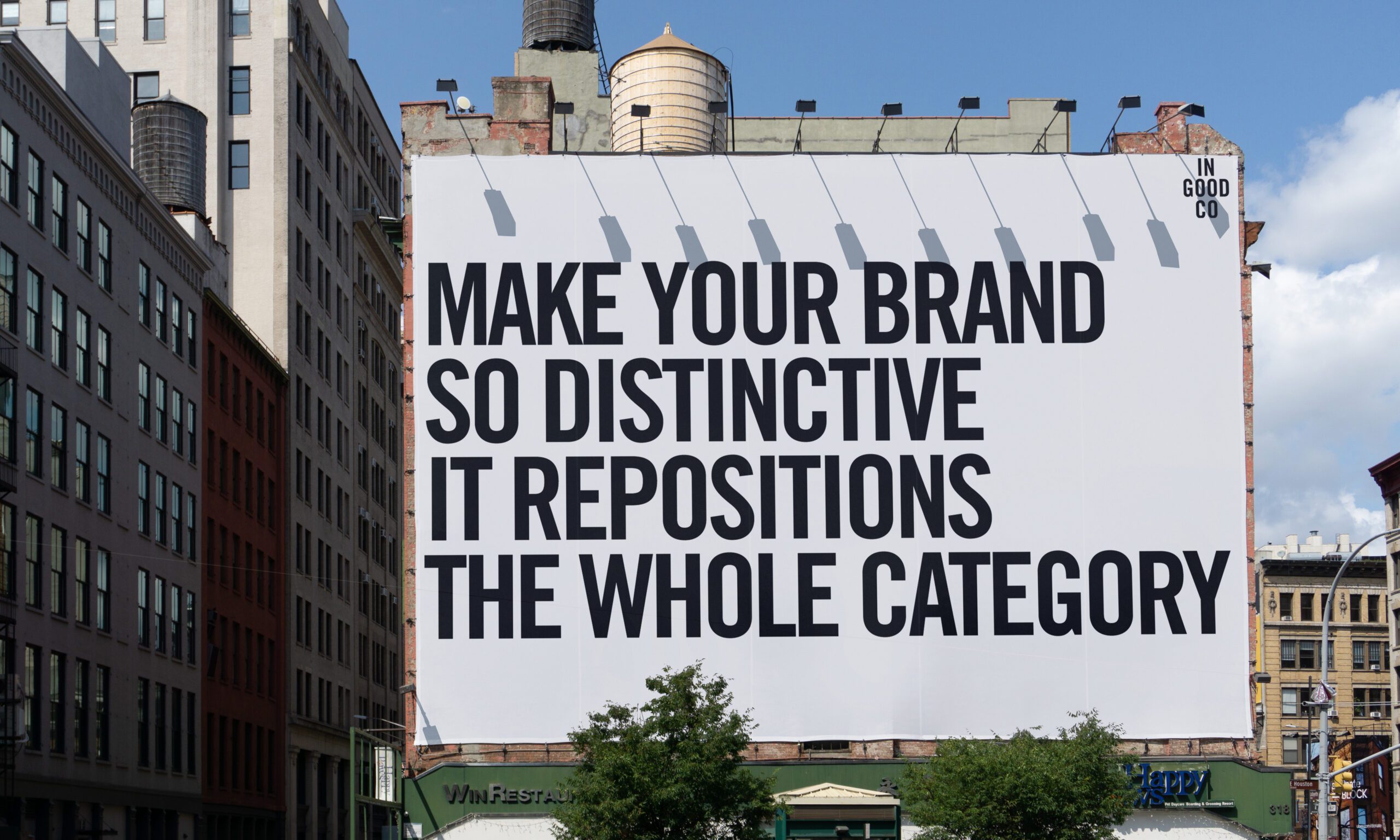How brand positioning makes good brands great brands.
Every morning I make a cup of tea. To get more specific: English breakfast*. Without fail, it’s PG Tips. For me, there is no other tea. Sure, it’s the quality. But it goes beyond that. There’s no messing with little strings and tags—because good English tea is made in a teapot. The taste is so distinctive its referenced in their tagline. And there’s the generational tradition: my mum drinks it, my brother drinks it, my nan drank it. Every sip is a little taste of home. PG Tips is a treatise on brand positioning. They have leaned into what makes them, them. And they are winning. Started in 1930, they are the #1 tea sold in Britain and are on international shelves worldwide. They hold the unique status all brands strive for: distinction + ubiquity.
BRAND DISTINCTION AND UBIQUITY CAN BE FOUND IN EVERY CATEGORY-DEFINING BRAND.
There’s a book about it. Many brands can be everywhere with good distribution but the difference between good brands and great brands is understanding your brand distinction—and living it.
Often, brand positioning, or what makes you distinctive, is C-suite activity that rarely trickles down into every aspect of the brand. And yet it should be the culture of the brand. It should be your main squeeze.
As brands grow, extending into new categories or new audiences, there is often a race to grab every coin. In doing this, brands often lose what made them distinctive. They lose perspective in favor of widening their pie. Yet, historically, successful brands narrow their focus rather than broaden it.
AND WIN BIGGER.
When Crocs trimmed its product selection by 30-40% to focus its efforts in their main clog, business sky-rocketed. When they focused on their main squeeze—they grew. Perhaps they shaved off some underperforming products but that doesn’t explain this level of growth. They leaned into what made them distinctive. Crocs was always for the slightly weird and subversive. Polarizing but delightful. The deeper they leaned into this position at every turn, the stronger they became. They did it with Jibbitz, brand partnerships, the list goes on and on. They narrowed their focus on what made them great and they went big on being everywhere in an unignorable way. Distinction + ubiquity—achieved.
THERE ARE THOUSANDS OF EXAMPLES OF FOCUS PAYING OFF.
Take Fishwife. They make tinned fish. They made their brand so distinctive it’s repositioning the WHOLE category. They have 48k followers on Instagram. The incumbents? Starkist, 17.8k. Bumble Bee Foods, 8k. Chicken of The Sea, 5K—Fishwife is clearly doing something right. They have a beautifully distinctive brand. From the illustration style, to their clear POV on who eats their tinned fish, to the partners they collaborate with. They are tuned in to what their consumers love. They ensured their spots at every shoppy shop* nationwide and they just inked a deal with Whole Foods. Distinction + ubiquity—check. If you’re not eating them yet, they’ll be improving your pantry any day now.
Liquid Death—another great example. They sell water. Everything about their success is positioning. And they lived it at every turn. They made distinction so core to their DNA it drove viral fame. Distinction + ubiquity status unlocked. Current valuation: $700 million.
AND THE BENEFITS OF ALL THIS EFFORT GO BEYOND THE BOTTOM LINE.
Tight positioning improves business, yes. And it drives ubiquity—the goal. But what’s often overlooked is how much a clear brand distinction will improve the lives of your team—business even gets better INSIDE the company. All decisions, from platforms to partnership, product categories to campaigns become clearer. When teams are guided by a strong position at every turn, living it daily, when they know your main squeeze, the how/when/where of the brand is clockwork.
This is not a plea to narrow your product categories down to one. The one thing you are good at is not a product. It’s your perspective. Your position is your distinctive take on your category, your audience, culture AND your product. Make it your guiding light. Make it the kool-aid. Make it WWJD. Make it something you live every day. Make it everything you do and everything you love.
Make it your main squeeze and see what happens.
*Tell me you’re English without telling them you’re English
**We happen to love the shoppy shops
